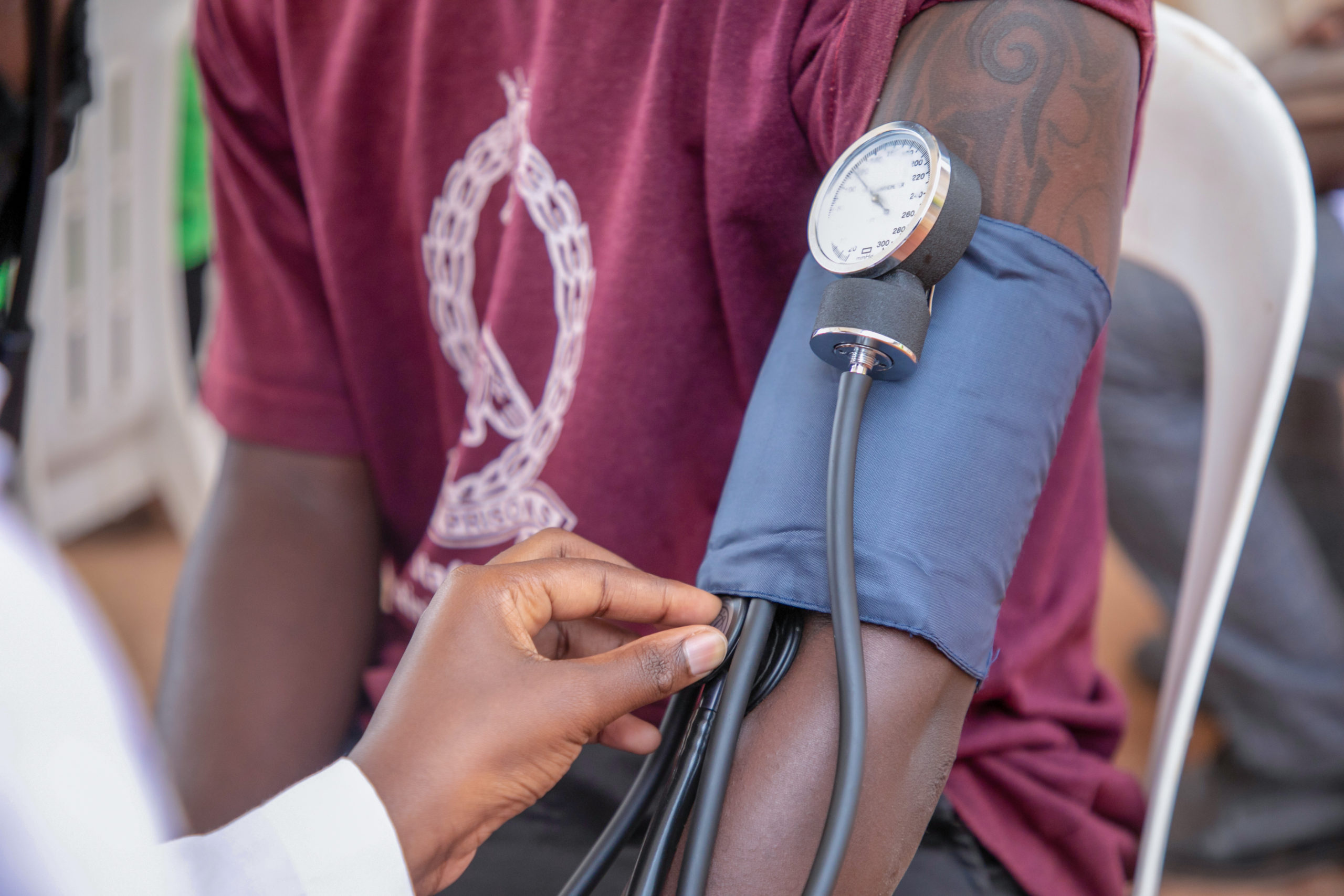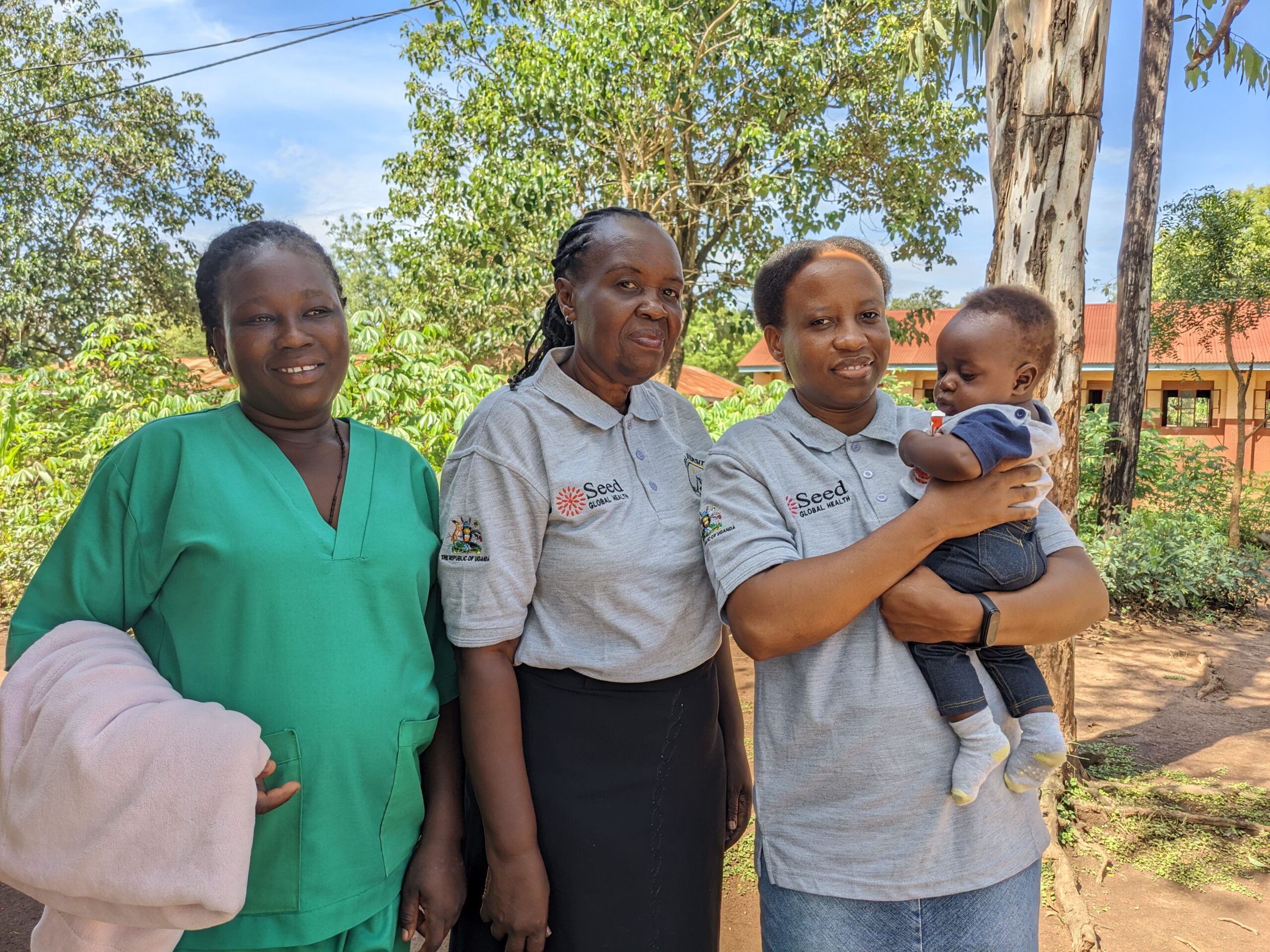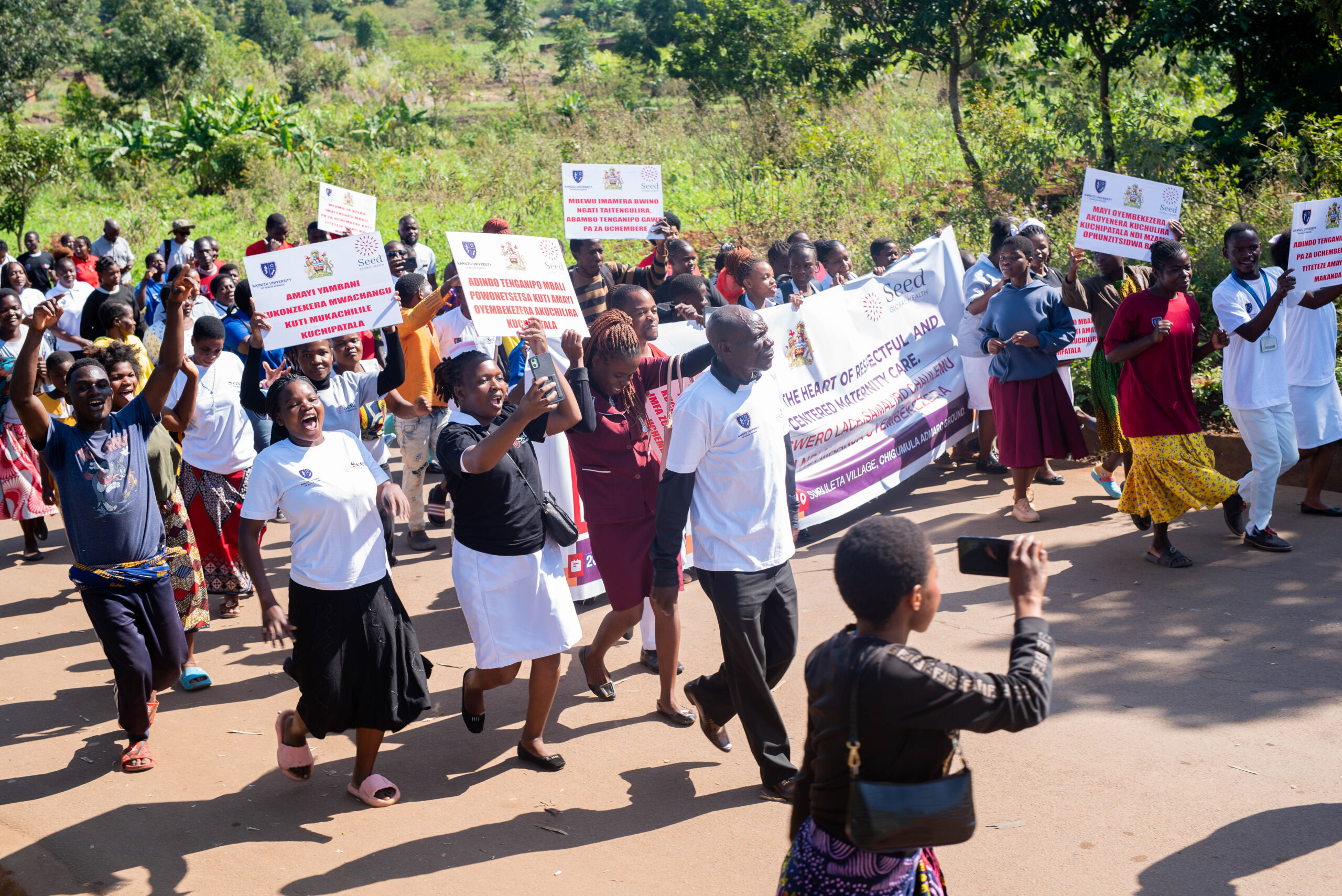
Uganda urgently needs help to stop the Ebola outbreak in its tracks
Opinion piece originally published in Fortune on September 30, 2022, 5:36 PM GMT+1
BY DR. VANESSA KERRY – CEO Seed Global Health, DR. JANE ACENG – Minister of Health, Uganda, and DR. HENRY BOSSA KYOBE – Ebola Incident Commander, Uganda
In the same week President Biden declared the COVID-19 pandemic over, the threat of another infectious disease outbreak loomed large. On September 20, new cases of Ebola confirmed arising from a relatively rare strain of Ebolavirus were confirmed in Uganda.
As of September 29, there have been 35 confirmed cases and seven confirmed deaths–with many more probable cases and a suspected fatality rate of around 50%. The outbreak has now expanded to two other districts, with 427 contacts listed for follow-up, and it will potentially spread to congested parts of downtown Kampala, the capital city. Up to six health care workers–including one fatality–were infected before the outbreak was identified.
Shockingly, Uganda is still isolated in the struggle to address this new threat despite the world having just endured the challenges of the COVID-19 pandemic as a single global health security problem. There has been an increased focus on the need for pandemic preparedness, resilient health systems, and a well-protected workforce to respond successfully to threats. However, the global response is not to the level of the threat we know Ebola to be to Uganda and the rest of the world.
We urgently need more well-trained, well-equipped, and well-protected health workers who can safely help respond to stop this outbreak in its tracks. We need to urgently unlock funding and support from our partners for training, mentoring, reskilling, and potential vaccination of health workers–buying us time against Ebola.
As with almost all global health investments and challenges over the past decades, recent investments have been myopically focused on a single disease–in this case, COVID-19. We have spent several months (encouraged by global funding) strengthening our workforce against coronavirus–but we now find ourselves at risk of being outrun by a pandemic we should be well equipped to tackle.
In the short term, we need urgent funding to train a skilled workforce able to detect and treat Ebola in Uganda. We are not currently getting the resources we need to help prevent the spread of this outbreak and ensure our health workers are protected and lives are saved.
In the longer term, we need the world to wake up and finally accept that we would all be better protected against diseases if countries had a fit-for-purpose health workforce able to address all diseases.
As trained medical doctors, we have seen first-hand the devastating impact of not having enough staff to provide the high-quality care we wanted to give our patients.
Since 2012, Seed Global Health has worked with governments across Africa to train physicians, nurses, and midwives to improve access to high-quality care. In Uganda, through partnerships with the government and in-country partners, we have contributed to the training of more than 4,000 health workers across myriad specialties.
While COVID has been the most notorious pandemic of the past several years, in truth, we face numerous pandemics. In 2022, a country like Uganda faces not only threats of COVID, Ebola, or an upsurge in malaria in the north and eastern part of the country, but we also still face the inequitable burdens of HIV, tuberculosis, trauma, and non-communicable disease.
Shockingly, an estimated 810 women continue to die each day due to complications related to pregnancy and childbirth. And none of this takes into account the devastating impacts of climate change, which are expected to cause additional deaths in the coming decade.
The multiple pandemics of today require a global and truly resilient pandemic strategy built on the strong foundation of greater investment in the health workforce–one that is well-trained, well-distributed, and well-protected–to be able to meet the entire spectrum of diseases we face.
It is now irrefutable that investing in healthcare workers brings a positive return. In fact, it’s more expensive not to invest. Investments in education and job creation in the health and social sectors result in improved health outcomes, global health security, and the advancement of women.
With 70% of our health workforce being women, this investment drives equity forward, challenges the gender gap that is so entrenched in many countries around the world, and allows women to participate more actively in the economy and public life.
We can contain this virus–but we urge our partners in global health to help us to unlock the funding needed to protect the people of Uganda and our immediate neighbors for the long term.
We need the global community to respond to this latest outbreak. It’s a challenge we must all face, with an approach grounded in facts and science, not in racism or colonial behaviors, which have been perpetuated for too long.
We can start by putting out the latest fire of Ebola. Then, let’s build towards the pandemic preparedness we really need–and the workforce that provides that.
Find out more information about our work in Uganda here: https://seedglobalhealth.org/uganda/

